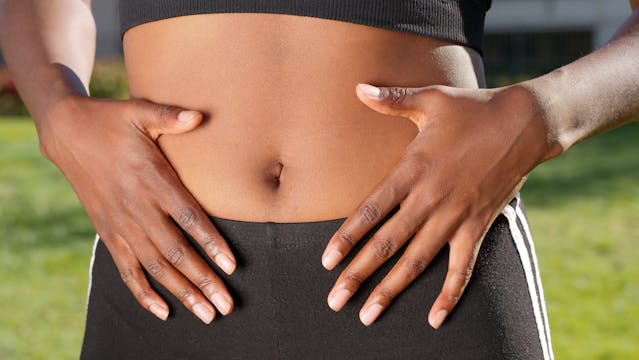
Is gut feeling real? Yes, gut feeling is real. It can be a case of your gut reflecting what your brain is subconsciously thinking, and it can be a way that your gut biome affects your brain.
Our gut microbiome is a living mass of organisms that we couldn’t live without. It is estimated that we have over a trillion bacteria living inside our intestines. A big part of what they do is to help us digest foods, but they also help with our immune system. We are talking about “gut feeling,” and the gut generally refers to the intestines. You have a short large intestine and a much longer small intestine. The gut microbiome lives in both of these, and it is made up of bacteria, viruses, fungi, and parasites. The bacteria have evolved to live inside us in a symbiotic relationship. We give them shelter and a regular food source, and in return, they break down foods for us that we otherwise couldn’t use. They break down complex carbohydrates, a lot of fiber, produce short-chain fatty acids, and they can break down some vitamins. They also break down the bile that our liver produces to help us digest fat. Once they have broken it down, the liver can reabsorb it. Without these bacteria, we would be severely malnourished, and we wouldn’t be able to produce enough bile. When it comes to the immune system, the bacteria in your microbiome will actively fight pathogens and competing bacteria. 80% of the body’s immune cells are in the gut, and they work to kill all the pathogens we eat. The short-chain fatty acids that the bacteria produce also strengthen the wall of the intestine, keeping pathogens out, and they help reduce inflammation in the intestines. They have many other benefits as well, but what we are interested in today is how they connect to the brain.
There is a strong connection between the gut and the brain. Signals can be sent between the two via the blood or via the vagus nerve, which connects the gut to the brain. Signals can be sent from the gut to the brain and from the brain to the gut. The signals sent to the brain from the gut can stimulate the brain to produce more serotonin, which is a neurotransmitter that regulates mood, sleep, digestion, and many other bodily functions as well. Bacteria in the gut also produce oxytocin, which is a hormone we produce when stressed. It makes us want to be more social.
Experiments on mice have shown that giving them different bacteria or depriving them of different bacteria can drastically alter their mood. Mice were given the bacteria Lactobacillus rhamnosus JB1 and then stressed. Mice that had the bacteria were far less anxious and depressed than those without it. Scientists then blocked the vagus nerve in the mice, and their stress and anxiousness returned, showing that the bacteria was sending signals along the nerve to the brain. Scientists have managed to breed mice without any bacteria at all, and these mice are more anxious, depressed, less sociable, less able to remember, and less able to learn than regular mice.
Mice are not that close to humans, but there have been some tests on people as well, and similar effects have been shown. Some bacteria reduce stress, make people less anxious, and reduce depression. However, it can be difficult to work out if people are less depressed because of the bacteria they eat or whether people who are not depressed eat more healthy food, which has better bacteria in it. It isn’t possible to make people with no bacteria because that would probably be fatal. They can test how people react to certain types of bacteria or supplements. One test gave multispecies probiotics (14 different types of bacteria) to groups of people for four weeks. It was a randomized, double-blind, placebo-controlled trial, so it was pretty reliable. The people who had the probiotic overwhelmingly reported feeling happier and less depressed. There is definitely something behind it. Bacteria make you physically healthier, but they can also make you mentally healthier.
So, gut feeling is definitely real. The bacteria in the gut can affect the brain, and the brain can make the bacteria produce chemicals as well. It is a two-way relationship. As to why the connection exists, there are some theories. One of them is that our intestines are very important to us because they control the health of our body. If we are malnourished, or if we have eaten something bad, or if there is a problem, the brain needs to know quickly. We also need to remember what happened so that we don’t do it again, and that could be why the gut is tied into the brain’s emotional sections. It is an interesting theory. And this is what I learned today.
Try these next’
Sources
https://my.clevelandclinic.org/health/body/the-gut-brain-connection
https://www.health.harvard.edu/staying-healthy/whats-the-connection-between-the-gut-and-brain-health
https://www.bbc.com/future/article/20230120-how-gut-bacteria-are-controlling-your-brain
https://my.clevelandclinic.org/health/body/25201-gut-microbiome
Photo by Kindel Media: https://www.pexels.com/photo/a-person-touching-her-belly-7298670/
